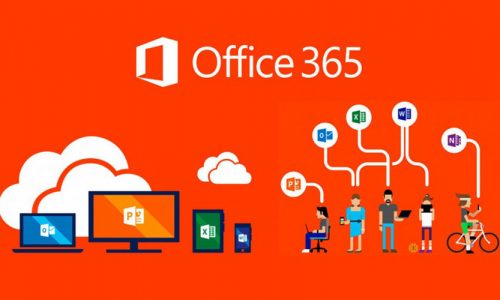Best Oracle DBA Training Institute in Delhi NCR

Join Best Oracle Dba Online Training in Delhi, Oracle Dba Online Training Course in Delhi, Oracle Dba Online Training Institute in Noida
WHAT IS ORACLE DBA?
CETPA INFOTECH is the best oracle training institute in Delhi NCR.Oracle DBA involves the administration of databases. A database administrator is required to manage a particular database.
- Installing and upgrading the Oracle server and application tools.
- Allocating system storage and planning future storage requirements for the database system.
- Creating primary database storage structures (table spaces) after application developers have designed an application.
- Creating primary objects (tables, views, indexes) once application developers have designed an application.
- Planning for backup and recovery of database information is learned inOracle DBA Training.
- Controlling and monitoring user access to the database.
- Ensuring compliance with your Oracle license agreement.
- Backing up and restoring the database is taught in Oracle DBA Training.
CETPA provides professional level Oracle DBATraining as it is the certified training partner of Oracle.It is the best training in Delhi NCR.
HISTORY OF ORACLE
Oracle has a 3 decade history, outlasting many of its predecessors founded in August 1977 by Larry Ellison, Bob Miner, Ed Oates and Bruce Scott. Oracle was initially named after “Project Oracle” a project for one of their clients, the C.I.A, and the company that developed Oracle was dubbed “Systems Development Labs”, or SDL.
In 1978 SDL was renamed Relational Software Inc. (RSI) to market their new database. Various versions of Oracle are:
- 1979 : Oracle release 2
- 1983 : Oracle release 3
- 1988 : Oracle release 6
- 1992 : Oracle release 7
- 2001 : Oracle release 9i
- 2003 : Oracle release 10g
- 2007 : Oracle release 11g
CAREER SCOPE AND INDUSTRY DEMAND OF ORACLE DBA
Database administrator salaries are among the highest base salaries in IT, and experienced DBAs and database team leaders can earn salaries well into the six-figure range. Regardless of their industry or database system specialization, database administration is a high-demand profession offering top-tier earning potential and significant opportunities for upward mobility. Oracle database is a well-established enterprise grade database, and lots and lots of companies have their data in Oracle databases. Also, Oracle is really complex, and that’s why anyone who has Oracle needs a DBA. So, the demand for Oracle DBA training is not going away soon. Hence, students should consider themselves enrolling for Oracle DBA training to take advantage of these employment opportunities.
STEPS REQUIRED TO LEARN ORACLE DBA
The Oracle DBA training is among the most perquisite training among the students and professionals also. Everyone wants to equip their knowledge with its learning. Oracle DBA Trainingis designed to provide candidates a strong foundation on administration of Oracle Database. To expertise in the technology CETPA has organized 4/6 weeks Oracle DBA Trainingclasses for the students and special short term course for the working professionals. The course consists of learning of many contents of Oracle like:
- Oracle 11g/12c DBA
- Oracle R12 APPS DBA
- Oracle 11g/12c RAC DBA
- Oracle Golden Gate
EXPERTISE OF CETPA IN ORACLE DBA
CETPA is a company established in 2002, having expertise in providing Oracle DBA training to the engineering students. It works in three verticals i.e. Training, development and consultancy and has been honored with many awards for its best training services, having branch in multiple locations of India like: Roorkee, Noida, Dehradun and Lucknow.Oracle DBA training offers trainee to expertise in technology with:
- Trainees learn how to install and maintain the Oracle Database
- They get good understanding of Oracle architecture.
- Learn to create an operational database and manage various structures in an efficient manner.
- Learn Oracle ASM and RMAN in detail.
- Knowing the internal functionality of each and every topic in DBA.
- Knowing the internal functionality of each and every topic in DBA.
CETPA offers 4/6 weeks as well as 6 months Oracle DBA training. The training provided is of international level that provides the students with job opportunity in India as well as foreign based companies. CETPA is a training school offering online Oracle DBA training for NRI students to avail them with distant-learning of technology. Feature that differentiate CETPA from other training companies are:
- Real time support and development project which is free along with the course.
- 100% placement assistance. Making a candidate 100% job ready.
- Complete Real time oriented training.
- Dealing the topics which are very advanced in the industry.
- High End Servers & Setups available for Lab practice. Online lab access available.
- Oracle Certified & Well experienced real time Professional working with leading MNC.
INDUSTRIES USING ORACLE DBA
There are huge requirements of Oracle DBA in India as well as foreign companies. Few companies are:
- Xavient Software Solutions Pvt. Ltd.
- IBM
- Wipro Limited
- CSC
- Dell
- Oracle
- HCL
- HP
- NEC
- DAMCO solutions and more…
Banks sector has also made extensive use of the Oracle. Few of the banks are: HDFC bank, City Bank and more, hiring Oracle DBA for their organization. If a student joins the ORACLE DBA Training from a reputed institute, it will help them in opening the door of sparkling opportunities in all the above companies.
CETPA PLACEMENT RECORD
CETPA provides real-time and placement focused oracle DBA training. Our oracle DBA training course includes basic to advanced level and is designed to get the placement in good MNC companies as quickly as once students complete the oracle DBA certification training course. Our oracle DBA trainers are oracle 10g 11g DBA certified experts and experienced working professionals with hands on real time multiple Oracle DBA projects knowledge. We have designed our industrial training and internship program course content and syllabus based on student’s requirement to achieve everyone’s career goal.
Through our associated oracle DBA training centers, we have trained more than 227+ oracle DBA students and provided placement. Few reflections of our successful placements provided to students are:
CETPA trains student to be Industry ready and this is reflected in our placements. Students willing to bag a good and exciting career can join CETPA for an exciting experience. For a countless number of placements from CETPA please Click Here.
What are the benefits of doing a Oracle DBA course?
- You will get better knowledge of programming and how to implement it for actual development requirements in the industrial projects and applications.
- Enhanced knowledge on the web development framework. Using this framework, you can develop dynamic websites swiftly.
- You will learn how to design, develop, test, support and deploy desktop, custom web, and mobile applications.
- Design and improve testing and maintenance activities and procedures.
- Design, implement and develop important applications in a Oracle DBA environment.
- Increased chances of working in leading software companies like Infosys, Wipro, Amazon, TCS, IBM and many more.
Certification
Professional growth, increased compensation and validation of the skill are the most popular reasons why individuals and professionals seek IT certifications. Keeping this in mind, we at CETPA provide you with certification in latest and innovative technologies to help you to reach your certification goals.
CETPA is the official Training partner of Oracle, Microsoft, Autodesk, Panasonic and Nuvoton and thus provides Training as per international standards and curriculum. CETPA proudly provides you certification in association with our training partners so that you can validate your domain specific technical skills. Certification from these big brands will help you in grabbing your dream job.
IMPORTANCE OF CETPA CERTIFICATION
For individuals and IT professionals:
- Gives you an advantage while searching for a job and provide a competitive advantage over your competitors.
- Ensure knowledge and skill are up to date and can be applied to the job.
- Provide credibility to those looking for a career in an IT domain.
- Offer fast track to career advancement.
- Demonstrate level of competency.
- Professional Credibility as well as it demonstrates your dedication and motivation to professional development.
- You are likely to stand out from the crowd and be considered to be successful in your positions.
- Represent a well-recognized and valued IT credential that increases marketability and competitive edge.
For organizations:
- Provide peace of mind with the confidence that certified employees have truly learned the skills necessary to do their jobs.
- Express valuable credentials to search for in prospective employees, and can help retain top performers when offered as an incentive.
- Offer a competitive advantage when the team is trained and certified regularly.
FAQ
WORKING WITH SQL
- Retrieving Data Using the SQL SELECT Statement
- List the capabilities of SQL SELECT statements
- Execute a basic SELECT statement
- Restricting and Sorting Data
- Limit the rows that are retrieved by a query
- Sort the rows that are retrieved by a query
- Use ampersand substitution to restrict and sort output at runtime
- Using Single-Row Functions to Customize Output
- Describe various types of functions available in SQL
- Use character, number, and date functions in SELECT statements
- Using Conversion Functions and Conditional Expressions
- Describe various types of conversion functions that are available in SQL
- Use the TO_CHAR, TO_NUMBER, and TO_DATE conversion functions
- Apply conditional expressions in a SELECT statement
- Reporting Aggregated Data Using the Group Functions
- Identify the available group functions
- Describe the use of group functions
- Group data by using the GROUP BY clause
- Include or exclude grouped rows by using the HAVING clause
- Displaying Data from Multiple Tables
- Write SELECT statements to access data from more than one table using equijoins and nonequijoins
- Join a table to itself by using a self-join
- View data that generally does not meet a join condition by using outer joins
- Generate a Cartesian product of all rows from two or more tables
- Using Subqueries to Solve Queries
- Define subqueries
- Describe the types of problems that the subqueries can solve
- List the types of subqueries Write single-row and multiple-row subqueries
- Using the Set Operators
- Describe set operators
- Use a set operator to combine multiple queries into a single query
- Control the order of rows returned
- Manipulating Data
- Describe each data manipulation language (DML) statement
- Insert rows into a table
- Update rows in a table
- Delete rows from a table
- Control transactions
- Using DDL Statements to Create and Manage Tables
- Categorize the main database objects
- Review the table structure
- List the data types that are available for columns
- Create a simple table
- Explain how constraints are created at the time of table creation
- Describe how schema objects work
- Creating Other Schema Objects
- Create simple and complex views
- Retrieve data from views
- Create, maintain, and use sequences
- Create and maintain indexes
- Create private and public synonyms
PERFORMING DATABASE ADMINISTRATION
- Exploring the Oracle Database Architecture
- Explain the Memory Structures
- Describe the Process Structures
- Overview of Storage Structures
- Preparing the Database Environment
- Identify the tools for Administering an Oracle Database
- Plan an Oracle Database installation
- Install the Oracle software by using Oracle Universal Installer (OUI)
- Creating an Oracle Database
- Create a database by using the Database Configuration Assistant (DBCA)
- Managing the Oracle Instance
- Setting database initialization parameters
- Describe the stages of database startup and shutdown
- Using alert log and trace files
- Using data dictionary and dynamic performance views
- Configuring the Oracle Network Environment
- Configure and Manage the Oracle Network
- Using the Oracle Shared Server architecture
- Managing Database Storage Structures
- Overview of tablespace and datafiles
- Create and manage tablespaces
- Space management in tablespaces
- Administering User Security
- Create and manage database user accounts
- Grant and revoke privileges
- Managing Undo Data
- Overview of Undo
- Transactions and undo data
- Managing undo
- Implementing Oracle Database Security
- Database Security and Principle of Least Privilege
- Work with Standard Database Auditing
- Database Maintenance
- Use and manage optimizer statistics
- Use and manage Automatic Workload Repository (AWR)
- Use advisory framework
Manage Alerts and Thresholds
- Performance Management
- Use Automatic Memory Management
- Use Memory Advisors
- Troubleshoot invalid and unusable objects
- Intelligent Infrastructure Enhancements
- Use the Enterprise Manager Support Workbench
- Managing Patches
- Backup and Recovery Concepts
- Identify the types of failure that can occur in an Oracle database
- Describe ways to tune instance recovery
- Identify the importance of checkpoints, redo log files, and archived log files
- Overview of flash recovery area
- Configure ARCHIVELOG mode
- Performing Database Backups
- Create consistent database backups
- Back up your database without shutting it down
- Create incremental backups
- Automate database backups
- Manage backups, view backup reports and monitor the flash recovery area
- Performing Database Recovery
- Overview of Data Recovery Advisor
- Use Data Recovery Advisor to Perform recovery (Control file, Redo log file and Data file)
- Moving Data
- Describe and use methods to move data (Directory objects, SQL*Loader, External Tables)
- Explain the general architecture of Oracle Data Pump
- Use Data Pump Export and Import to move data between Oracle databases
- Create and manage roles
- Create and manage profiles
- Managing Data and Concurrency
- Monitor and resolve locking conflicts
WORKING WITH SQL
- Introduction to PL/SQL
- Explain the need for PL/SQL
- Explain the benefits of PL/SQL
- PL/SQL Cursor
- Using Explicit Cursors
- Distinguish between usage of implicit and explicit cursors
- Declare and control explicit cursors, use simple loops and cursor FOR loops to fetch data
- Creating Procedures and Functions
- Work with procedures
- Differentiate between a procedure and a function
- Describe the uses of functions
- Work with functions (create, invoke and remove functions)
- Creating Database triggers
- Creating Triggers
- Describe different types of triggers and their uses
- Create database triggers
- Manage triggers
Mode/Schedule of Training:
CETPA, The Best Oracle DBA Training Institute in Delhi NCR offers courses in following modes.| Delivery Mode | Location | Course Duration | Schedule (New Batch Starting) |
|---|---|---|---|
| Classroom Training (Regular/ Weekend Batch) | *Noida/ Lucknow *Dehradun /Roorkee | 4/6/12/24 weeks | New Batch Wednesday/ Saturday |
| *Instructor -Led Online Training | Online | 40/60 Hours | Every Saturday or as per the need |
| *Virtual Online Training | Online | 40/60 Hours | 24x7 Anytime |
| College Campus Training | India or Abroad | 40/60 Hours | As per Client’s need |
| Corporate Training (Fly a Trainer) | Training in India or Abroad | As per need | Customized Course Schedule |
5

Oracle DBA Training in Noida
My personal experience with CETPA was good. I had joined CETPA for Oracle DBA Training. They helped me to understand depth knowledge of Oracle DBA. After the training was over, they also arranged interview for me in many companies. I can say that it is worth to invest time and money here.
5

Oracle DBA Training in Delhi
I was looking for an OrACLE teacher. A friend recommended me . I spent 4month studying in orcle sql + DBA in Linux His adjustments were excellent for me. I have learned a...thnku sir
Oracle DBA Training in Noida
My personal experience with CETPA was good. I had joined CETPA for Oracle DBA Training. They helped me to understand depth knowledge of Oracle DBA. After the training was over, they also arranged interview for me in many companies. I can say that it is worth to invest time and money here.
Oracle DBA Training in Delhi
I was looking for an OrACLE teacher. A friend recommended me . I spent 4month studying in orcle sql + DBA in Linux His adjustments were excellent for me. I have learned a...thnku sir
Course Features
- Lectures 0
- Quizzes 0
- Duration 10 weeks
- Skill level All levels
- Students 0
- Assessments Yes







